(We’ll be back to regularly scheduled programming later this month with more on semiconductors, basic scientific research in China, and the aerospace industry.)
I had a hard time bringing myself to read though Chinese commentary about the protests in America. The tone of the most popular articles is uniform in gloating about how China has solved the sorts of problems America is now facing. State and new media pointed to American hypocrisy and the double standards it holds China. For instance, after the CNN reporter was arrested, plenty claimed that America’s press freedom isn’t all its cracked up to be.
For a taste of the ignorance I’ve come across so far, this article entitled ‘Why Do White Americans Discriminate Against Blacks,” published on an individual account racked up hundreds of thousands of views.
Although the Europeans and Americans have entered modern civilization, because it happened so quickly and their civilization doesn’t have a very long track record, discriminatory thinking is hard to eradicate in a short period.
In ancient China, people used to think minorities were barbarians, but no one thinks that today. Why? Because our civilization is rather advanced and has had a long time to integrate minorities, so it’s already hard to tell who is what race.
After a comment like that, I feel obliged to leave this link here.
Another viral piece called on American minorities to study Mao thought, even though their movement was probably hopeless “since Blacks have low IQ.” This sort of sentiment isn’t an outlier; the amount of casual racism on Chinese social media is just overwhelming.
One of the few pieces I came across that tried to be thoughtful was written by a Chinese national who has spent the past ten years living in St. Louis and Seattle. Entitled “Why Do So Many White People Participate in Black Demonstrations in Minneapolis,” it got 70k views. She leveraged her clickbait title into focusing most of the article on why she believes most Chinese in the US don’t sympathize with the experience of Blacks in America. A few of the reasons she lists include:
[Thanks to low levels of personal social interaction and a toxic media environment] many think that black people are mostly criminals. Various reports of black bullying and robbery by Chinese on Chinese social media have deepened these impressions.
Although Chinese are considered minorities after coming to the United States, and past generations of Chinese immigrants may have suffered, in fact, many new immigrants from the mainland have basically gone from studying abroad to working in big companies in major ‘civilized’ cities. They basically get to enjoy the fruits of the Civil Rights Movement and the work that African Americans who have struggled for decades for without any concept of what they went through.
[After discussing a recent successful organizing effort on the part of the Chinese community in Washington State opposing the I-1000 bill which would have legalized affirmative action quotas, she goes on to write] If we only fight for our own interests rather than because we believe in social fairness, does the price of one's own interests maintain social justice? To build such a belief, you first need to have empathy, compassion, and the ability to understand and care about others’ pain.
This eloquent English-language essay by a handful of Chinese-American Yale students echoed the same sentiment. It was translated into Chinese and went viral with hundreds of thousands of views. However, one of the top-voted comments said that blacks “aren’t discriminated against because of their color but because of their actions” and went on to say that Black Lives Matter was no better than the KKK, and that White supremacists never went around looting.
Will America’s Protest Movement Develop Along the Lines of Hong Kong’s?
Some in western media have pointed to similarities between Hong Kong and America’s protest movement. After all, both are leaderless and spontaneous. Trump’s response calling on the states to “dominate” their protesters likely echoed the messages coming out of Beijing.
In HK, it took long months of government policy completely unresponsive to demands, piss-poor policing, and the use of violent thugs to radicalize the HK people. Young protesters felt they had other choice but to resist head-on and enough of the broader society got on board to provide moral and logistical support to their operations. For now, the majority of those on America’s streets as well as the most capable, organized, and dedicated segments of the protest movement are against looting and violent confrontation with the cops. Those involved in the most extreme actions in America right now don’t have the support of the masses of protesters or the numbers to sustain in the face of mounting arrests.
It’s possible that some localities escalate the level of force and ultimately radicalize a higher percentage of the movement. Tragically that is clearly the direction Trump is pushing. HK showed that with enough broad support, a capable and ideologically committed youth movement can get inside a modern police force’s OODA loop and keep streets roiling for months.
But thankfully, unlike in HK, our votes still matter, and local officials don’t have to listen to what the central government says.
It’s possible in America to see police in solidarity with protesters like those in Camden and Flint and Spokane and Des Moines and even New York. I still have enough faith in the American system to believe that somehow all of this will lead to a better future.
For a more pessimistic take, Zoe Zhao, a sociology PhD student at UPenn, writes in the HK outlet The Initium:
Protesting anonymously is not a generally accepted method in American social movements. They still believe in the myth of the rights of protesters under a democratic regime being stronger than those under an autocratic regime. Many of the anti-surveillance strategies in the Hong Kong movement, such as anti-face recognition, the use of Telegram and sign-language, and the use of voice-altering devices…don’t exist in this movement. The ideological arrogance of being in a “democratic country” makes these inexperienced protesters extremely vulnerable to the state machine. They are reluctant to admit that the challenges they face on the street are already very close to Hong Kong.
China Twitter Tweets of the Week









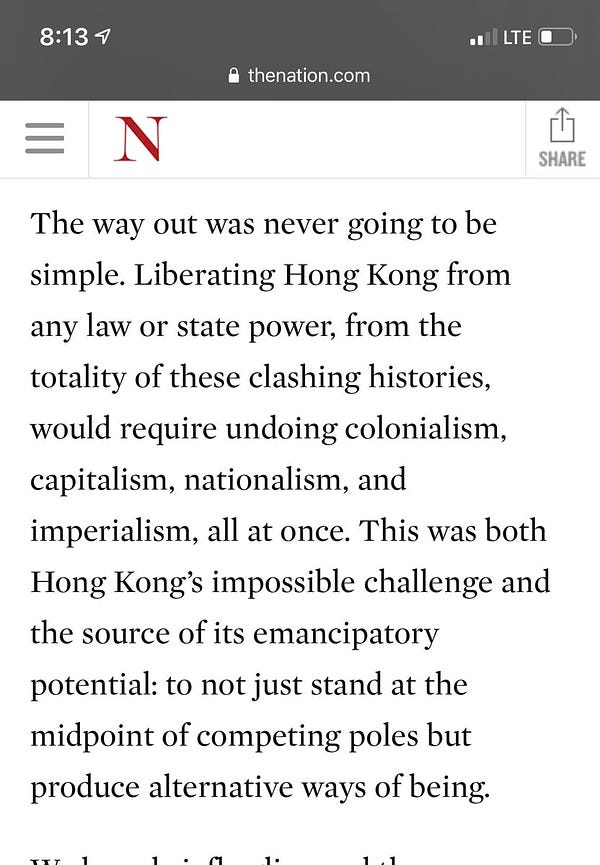

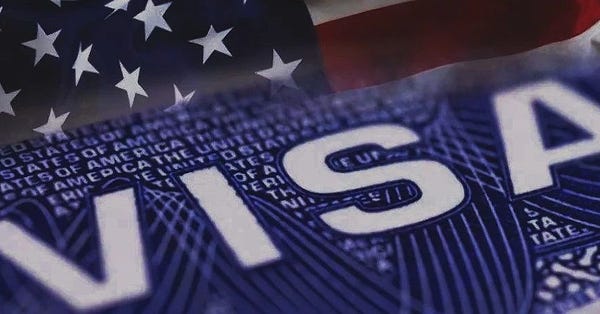










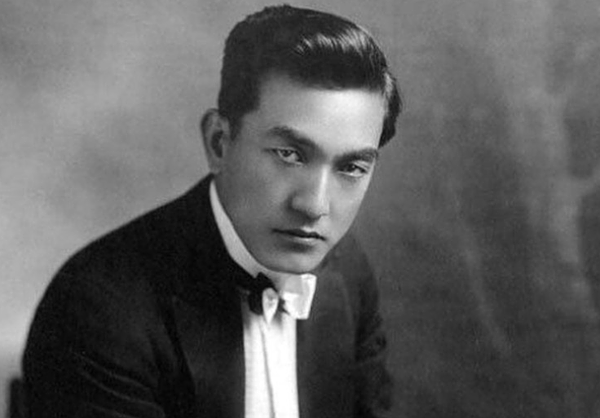


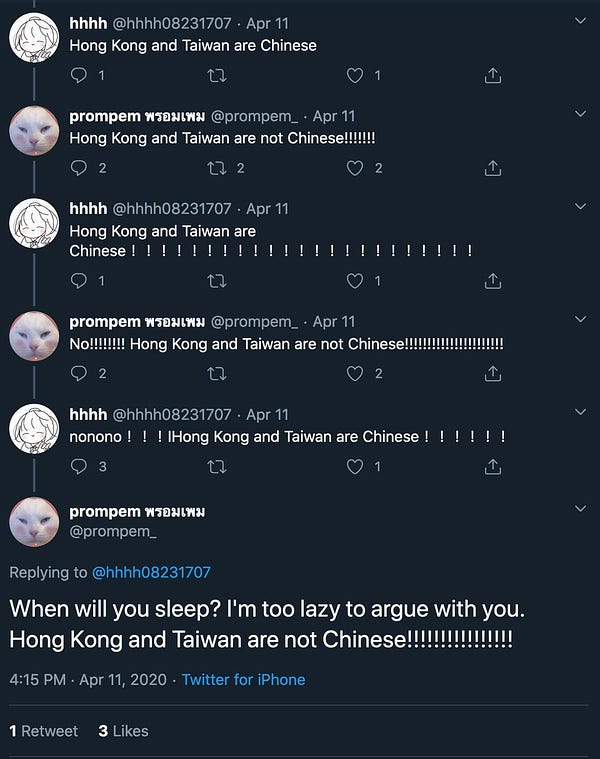
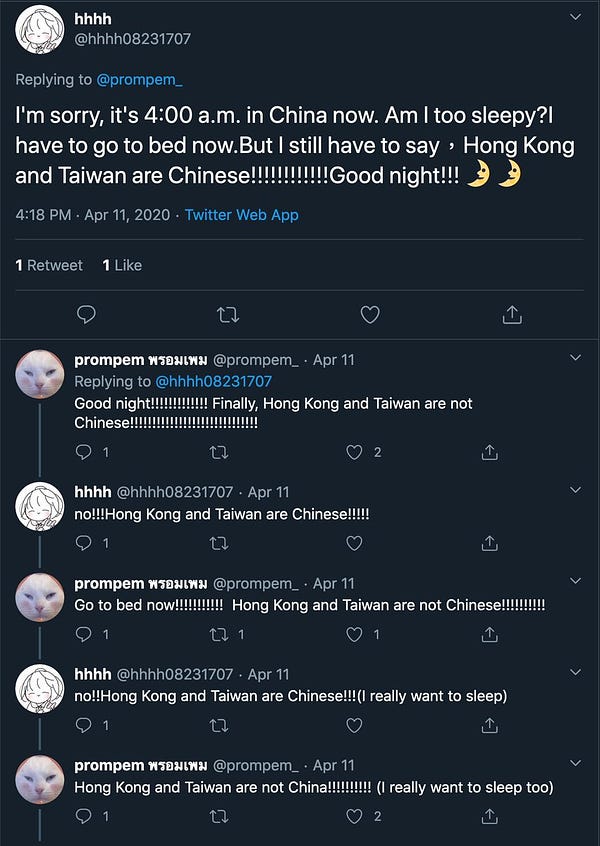
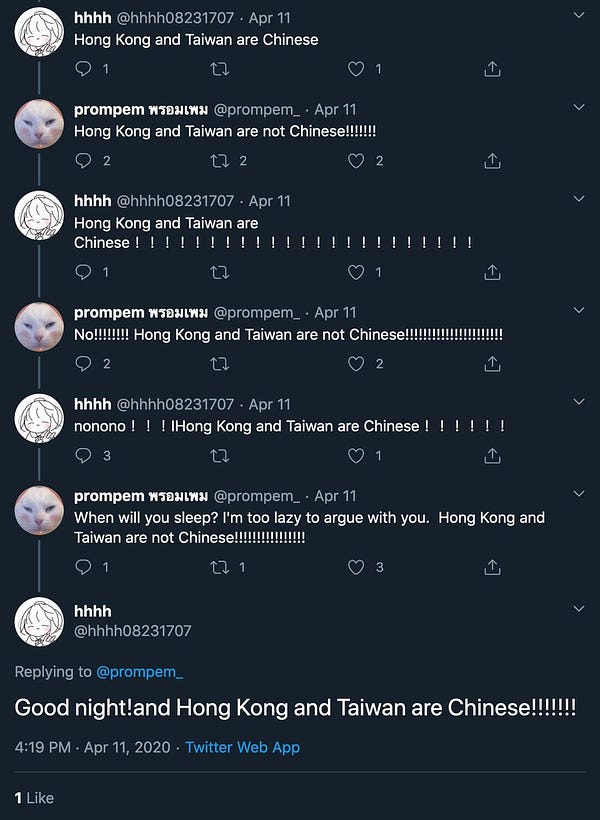
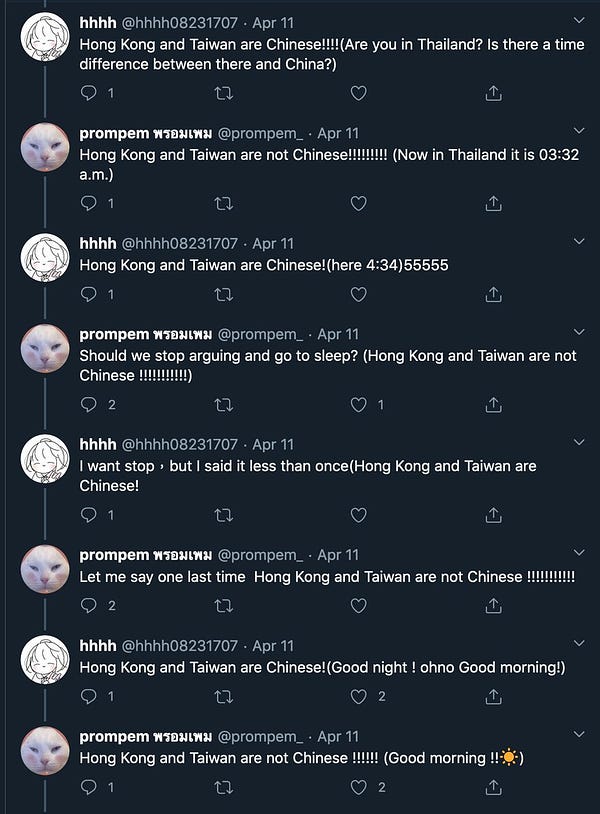
As someone who is neither American nor Chinese, I dont have any difficulty reading through Chinese commentary about the protests in America. It sounds triumphalist to you but just desserts to a hell of a lot of Chinese people. You may say/think that the reaction to the HK protests was a tragedy for the simple fact that citizens were oppressed and their rights trampled on. But to a hell of a lot of Americans, the most insidious thing about it was that China was the perpetrator. There was a huge geopolitical element that was hardly hidden from view.
My advice, stop whining now the boot is on the other foot and take your medicine. This whole "we're justified in tut-tutting at the Hong Kong crackdown because we adopt a moral angle but its all about schadenfreude with those guys and if they do it, its undignified" is pure BS